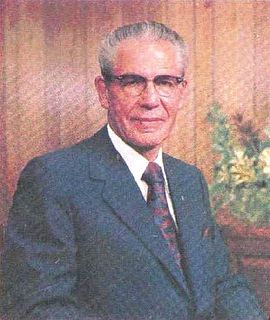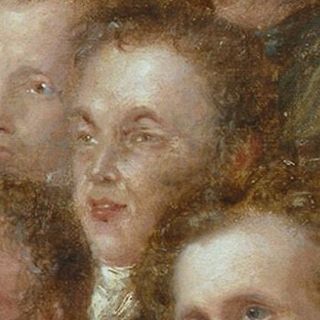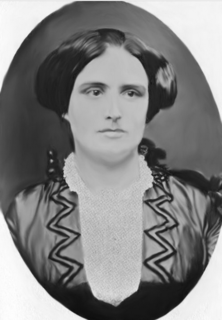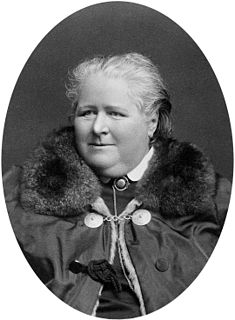A Quote by Oliver Goldsmith
She who makes her husband and her children happy, who reclaims the one from vice, and trains up the other to virtue, is a much greater character than the ladies described in romance, whose whole occupation is to murder mankind with shafts from their quiver or their eyes.
Related Quotes
A wife, if she is very generous, may allow that her husband lives up to perhaps eighty percent of her expectations. There is always the other twenty percent that she would like to change, and she may chip away at it for the whole of their married life without reducing it by very much. She may, on the other hand, simply decide to enjoy the eighty percent, and both of them will be happy.
A mother experiences more than one death, even though she herself will only die once. She fears for her husband; she fears for her children; again she fears for the women and children who belong to her children. ... For each of these-whether for loss of possessions, bodily illness, or undesired misfortune-she mourns and grieves no less than those who suffer.
I sit on the couch watching her arrange her long red hair before my bedroom mirror. she pulls her hair up and piles it on top of her head- she lets her eyes look at my eyes- then she drops her hair and lets it fall down in front of her face. we go to bed and I hold her speechlessly from the back my arm around her neck I touch her wrists and hands feel up to her elbows no further.
One thing I did have under my belt was, my mother lost her mother when she was 11. She mourned her mother her whole life and made my grandmother seem present even though I never met her. I couldn't imagine how my mom could go on but she did, she took care of us, she worked two jobs and had four children. She was such a good example of how to conduct oneself in a time of grief. When I lost my husband, I tried to model myself as much as I could on her.
Every woman whether rich or poor, married or single, has a circle of influence within which, according to her character, she is exerting a certain amount of power for good or harm. Every woman, by her virtue or her vice, by her folly or her wisdom, by her levity or her dignity, is adding something to our national elevation or degradation. A community is not likely to be overthrown where woman fulfills her mission, for by the power of her noble heart over the hearts of others, she will raise that community from its ruins and restore it again to prosperity and joy.
So immense are the claims on a mother, physical claims on her bodily and brain vigor, and moral claims on her heart and thoughts, that she cannot ... meet them all and find any large margin beyond for other cares and work. She serves the community in the very best and highest way it is possible to do, by giving birth to healthy children, whose physical strength has not been defrauded, and to whose moral and mental nature she can give the whole of her thoughts.
I think Nature, if she interests herself much about her children, must often feel that, like the miserable Frankenstein, with her experimenting among the elements of humanity, she has brought beings into existence who have no business here; who can do none of her work, and endure none of her favours; whose life is only suffering; and whose action is one long protest against the ill foresight which flung them into consciousness.





































